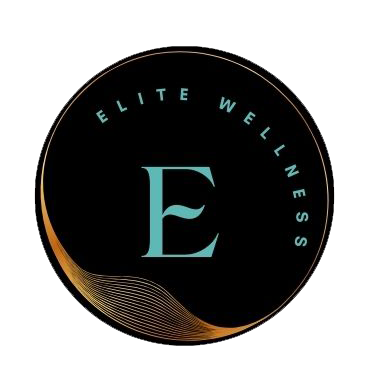Blog
Contact Us
February 28, 2025
Are you ready to turn back the hands of time and embrace youthful, radiant skin? Aging is a natural process, but with the right skincare routine, you can keep your complexion looking fresh and youthful for years to come. In this blog, we'll explore some key skincare products that can help combat the signs of aging, with a special focus on the importance of sunscreen in your daily regimen. Cleanser: Start your anti-aging skincare routine with a gentle cleanser tailored to your skin type. Cleansing removes dirt, oil, and impurities, allowing your other skincare products to penetrate more effectively. Exfoliator: Regular exfoliation is essential for sloughing away dead skin cells and promoting cell turnover. Look for chemical exfoliants containing ingredients like alpha hydroxy acids (AHAs) or beta hydroxy acids (BHAs) to reveal smoother, brighter skin. Serum: Serums are concentrated formulas packed with potent ingredients that target specific skincare concerns. For anti-aging benefits, choose serums containing ingredients like vitamin C, retinol, or hyaluronic acid to help improve skin texture, firmness, and hydration.Moisturizer: Hydration is key to maintaining youthful-looking skin. Opt for a moisturizer that provides both hydration and nourishment, helping to plump up the skin and reduce the appearance of fine lines and wrinkles. Eye Cream: The delicate skin around the eyes is often the first area to show signs of aging. Incorporate an eye cream into your routine to hydrate, brighten, and minimize the appearance of dark circles and crow's feet. Sunscreen: Perhaps the most crucial step in any anti-aging skincare routine is sunscreen. Sun exposure is one of the leading causes of premature aging, including wrinkles, fine lines, and age spots. Choose a broad-spectrum sunscreen with an SPF of 30 or higher, and apply it generously every day, rain or shine. Not only does sunscreen protect your skin from harmful UV rays, but it also helps prevent collagen breakdown and keeps your complexion looking youthful and healthy. Retinol Treatment: Retinol, a derivative of vitamin A, is a powerhouse ingredient for combating signs of aging. It helps stimulate collagen production, improve skin texture, and reduce the appearance of wrinkles and fine lines. Incorporate a retinol treatment into your nighttime skincare routine, starting with a lower concentration and gradually increasing as your skin adjusts. Remember, consistency is key when it comes to anti-aging skincare. Establishing a daily routine that includes these key products can help you maintain a youthful complexion and keep signs of aging at bay. And don't forget the sunscreen – it's your best defense against the visible effects of sun damage. So, embrace these skincare secrets and unlock the fountain of youth for radiant, age-defying skin!

February 28, 2025
Embarking on hormone replacement therapy (HRT) is a journey of self-discovery and transformation, offering relief from symptoms and restoring vitality. One of the remarkable benefits of HRT, especially testosterone replacement therapy, is its potential to reignite passion and improve your sex life. Whether you're exploring HRT for the first time or seeking ways to enhance your intimate experiences, this blog will explore how hormone replacement therapy can revitalize your sex life and provide actionable tips for maximizing pleasure and connection. The Power of Hormones: Transforming Intimacy Hormones serve as the body's chemical messengers, influencing various aspects of our physical and emotional well-being, including sexual function and desire. Testosterone, in particular, plays a pivotal role in libido, arousal, and sexual performance. When testosterone levels are optimized through hormone replacement therapy, individuals may experience a range of improvements in their sex life, including: increased libido. Testosterone is the driving force behind sexual desire, often referred to as the "fuel" for our libido. Through hormone replacement therapy, individuals with low testosterone levels can experience a resurgence of sexual interest and desire, reigniting the passion in their relationships. Enhanced Arousal: Testosterone contributes to the physiological responses involved in sexual arousal, such as increased blood flow to the genitals and heightened sensitivity. As testosterone levels are replenished, individuals may notice heightened arousal and more intense sensations during sexual activity. Improved Erectile Function: For men struggling with erectile dysfunction or difficulties achieving and maintaining erections, testosterone replacement therapy can offer significant improvements. Optimal testosterone levels support the health and function of penile tissues, leading to stronger and more sustainable erections. Enhanced Orgasmic Response: Testosterone plays a role in the intensity and frequency of orgasms, enhancing the pleasure and satisfaction derived from sexual experiences. Through hormone replacement therapy, individuals may experience more fulfilling and enjoyable climaxes, leading to greater overall satisfaction. Tips for Maximizing Pleasure and Connection During HRT: In addition to the benefits provided by hormone replacement therapy, there are various strategies and tips you can incorporate to further enhance your sex life. Communicate Openly: Honest and open communication with your partner is essential for a fulfilling sex life. Discuss your desires, fantasies, and any concerns related to hormone replacement therapy openly and without judgment. By fostering a supportive and understanding environment, you can navigate changes together and deepen your intimacy. Prioritize Foreplay: Take the time to engage in sensual activities and extended foreplay to build anticipation and arousal. Explore each other's bodies, experiment with different sensations, and focus on mutual pleasure and connection before progressing to intercourse. Experiment with New Techniques: Keep things exciting and fresh by exploring new techniques, positions, and fantasies together. Be open to trying new things and stepping outside of your comfort zone to discover what brings you both pleasure and satisfaction. Focus on Sensuality: Embrace the sensual aspects of intimacy by incorporating elements such as candlelight, music, massage oils, and lingerie. Create a romantic and inviting atmosphere that enhances the mood and fosters connection between you and your partner.

February 28, 2025
Embarking on a weight loss journey is like setting sail on a turbulent sea, filled with highs and lows, challenges and victories. Throughout my own experience, I've encountered various struggles that threatened to derail my progress. However, by incorporating high protein diets and exercise into my routine, I've found effective ways to overcome these hurdles and stay on course towards my goals. Understanding the Struggles: Cravings and Hunger Pangs: Oh, the relentless battle against cravings! Late-night snack cravings, sweet tooth temptations – you name it, I've faced it. The struggle to resist those tempting treats and persistent hunger pangs often left me feeling defeated. Plateaus: Just when I thought I was making significant progress, the dreaded plateau would hit. Despite my efforts, the scale seemed stubbornly stuck, testing my patience and resolve. Lack of Energy: Starting my weight loss journey left me feeling like I was running on empty. The fatigue and exhaustion made it challenging to muster the energy for workouts and meal prepping. Emotional Eating: Stressful days at work, relationship woes, or even a bad mood – all too often, I found myself seeking solace in food, succumbing to emotional eating and undoing my progress. Overcoming Struggles with High Protein Diets and Exercise: Prioritize Protein: Learning to love protein-rich foods became my secret weapon against cravings. From hearty chicken salads to Greek yogurt with berries, incorporating protein into every meal helped keep my hunger at bay and cravings in check. Plan and Prep Meals: Meal planning and prepping became my saving grace. Spending a little extra time on Sundays chopping veggies and portioning out meals for the week ahead not only saved time but also prevented impulsive food choices when hunger struck. Incorporate Strength Training: Initially intimidated by the weight room, I slowly embraced strength training and witnessed its transformative effects. Not only did it help me sculpt lean muscle, but it also revved up my metabolism, helping me break through stubborn plateaus. Stay Hydrated: Guilty of mistaking thirst for hunger, I made it a habit to carry a water bottle everywhere I went. Staying hydrated not only curbed unnecessary snacking but also kept my energy levels up throughout the day. Manage Stress: Stress became my biggest trigger for emotional eating. Implementing stress-relief strategies like evening walks, meditation, and journaling helped me find healthier outlets for managing my emotions and avoiding the dreaded binge-eating sessions. My weight loss journey has been far from easy, but it's been incredibly rewarding. By incorporating high protein diets and exercise into my lifestyle, I've learned to navigate the struggles of cravings, plateaus, lack of energy, and emotional eating. Through perseverance and self-discovery, I've not only transformed my body but also gained invaluable insights into my own resilience and strength. With each hurdle overcome, I've emerged stronger and more determined to continue forging ahead towards a healthier, happier me.

February 28, 2025
In the intricate symphony of hormones that regulate a woman's body, progesterone plays a pivotal role. Often overshadowed by its more famous counterpart, estrogen, progesterone deserves the spotlight for its remarkable benefits. From balancing mood swings to nurturing pregnancy, let's delve into the world of progesterone and uncover its array of benefits for women. Hormonal Balance: Progesterone acts as a counterbalance to estrogen, helping to maintain hormonal equilibrium in women. This balance is crucial for regulating the menstrual cycle, promoting fertility, and mitigating symptoms of estrogen dominance, such as bloating, breast tenderness, and mood swings. Menstrual Health: For many women, the menstrual cycle can be synonymous with discomfort and distress. However, adequate progesterone levels can alleviate menstrual woes by ensuring a smooth transition through the menstrual phases. Progesterone's role in stabilizing the endometrial lining helps reduce heavy bleeding and painful periods, promoting overall menstrual wellness. Mood Regulation: Ever experienced mood swings that seem to hijack your emotions? Progesterone comes to the rescue by exerting a calming effect on the brain. As a natural mood stabilizer, it helps to soothe irritability, anxiety, and even symptoms of depression, offering women a sense of emotional stability throughout their menstrual cycle. Fertility Support: When it comes to conception and pregnancy, progesterone takes center stage. Following ovulation, progesterone levels rise to prepare the uterus for implantation and support early pregnancy. Insufficient progesterone can hinder conception or lead to miscarriage, highlighting its critical role in fertility and reproductive health. Bone Health: Beyond its reproductive functions, progesterone also contributes to bone health in women. By stimulating bone formation and inhibiting bone breakdown, progesterone helps maintain bone density and reduce the risk of osteoporosis, especially during menopause when estrogen levels decline. Skin Health: Progesterone's influence extends to the realm of skincare, where it collaborates with estrogen to maintain skin elasticity and hydration. Adequate progesterone levels promote collagen production, which can help combat the signs of aging, such as wrinkles and sagging skin, leaving women with a radiant complexion. In the intricate tapestry of women's health, progesterone emerges as a silent yet powerful ally. From regulating menstrual cycles to supporting fertility and nurturing pregnancy, its multifaceted benefits underscore its importance in women's well-being. By understanding and appreciating the role of progesterone, women can empower themselves to embrace hormonal harmony and thrive in every phase of life.

February 28, 2025
In our fast-paced, often stressful world, health and wellness can sometimes take a backseat to our daily obligations. However, adopting a proactive approach to health can lead to a longer, more vibrant life. Proactive health isn’t just about treating problems as they arise; it’s about anticipating them and taking steps to prevent them. From prioritizing preventive care to exploring advanced wellness options like hormone replacement therapy (HRT), weight training, and anti-aging treatments such as peptides, this blog will guide you on how to live a healthier, more proactive life. 1. **Prioritize Preventive Care** Preventive care is the foundation of a proactive health strategy. Regular check-ups, screenings, and vaccinations are essential for early detection and prevention of diseases. Collaborate with your healthcare provider to tailor a preventive care plan that fits your unique health profile. Regular health assessments can help catch potential issues early, increasing the likelihood of successful treatment and preventing more serious health problems. 2. **Hormone Replacement Therapy (HRT)** As we age, hormone levels naturally decline, leading to a variety of symptoms such as fatigue, weight gain, mood swings, and decreased libido. Hormone Replacement Therapy (HRT) can be a game-changer in managing these symptoms and improving quality of life. For both men and women, HRT can help restore hormonal balance, leading to increased energy levels, improved mood, better sleep, enhanced sexual function, and even better skin elasticity. It’s important to consult with a healthcare provider to determine if HRT is right for you and to develop a personalized treatment plan. 3. **Embrace a Balanced Diet** Nutrition plays a crucial role in maintaining overall health. A balanced diet rich in fruits, vegetables, whole grains, lean proteins, and healthy fats provides the nutrients your body needs to function optimally. Avoid processed foods high in sugar, salt, and unhealthy fats, as they can contribute to chronic diseases such as obesity, diabetes, and heart disease. Consider consulting a nutritionist to create a diet plan that aligns with your health goals and supports your long-term wellness. 4. **Stay Active with Weight Training** Exercise is a cornerstone of a healthy lifestyle, and weight training, in particular, offers unique benefits. Regular strength training helps build and maintain muscle mass, which naturally declines with age. It also boosts metabolism, promotes fat loss, improves bone density, and enhances overall physical function. Weight training can also improve mental health by reducing symptoms of anxiety and depression, and it supports healthy aging by keeping you strong, mobile, and independent. 5. **Manage Stress Effectively** Chronic stress can take a toll on your physical and mental health, leading to issues such as heart disease, depression, and a weakened immune system. Practicing stress management techniques such as meditation, deep breathing exercises, yoga, or mindfulness can help you stay calm and focused. It’s also important to maintain a healthy work-life balance and engage in hobbies and activities that bring you joy and relaxation. 6. **Get Quality Sleep** Sleep is essential for your body’s ability to repair itself and function properly. Aim for 7-9 hours of quality sleep each night to support your immune system, cognitive function, and emotional well-being. Create a sleep-friendly environment by keeping your bedroom cool, dark, and quiet. Establish a regular sleep schedule by going to bed and waking up at the same time every day, even on weekends. Avoid caffeine, heavy meals, and screens before bedtime to improve your sleep quality. 7. **Stay Hydrated** Water is vital for almost every bodily function, including digestion, circulation, temperature regulation, and toxin elimination. Aim to drink at least eight 8-ounce glasses of water a day, or more if you’re physically active or live in a hot climate. Proper hydration can improve your energy levels, support your metabolism, and keep your skin looking healthy. 8. **Explore Anti-Aging Options: Peptides** As part of a proactive approach to wellness, exploring anti-aging options such as peptides can offer significant benefits. Peptides are short chains of amino acids that serve as the building blocks of proteins. They play a crucial role in various bodily functions, including skin repair, muscle growth, and hormone production. Specific peptides, like collagen peptides, can improve skin elasticity and reduce wrinkles, while others can promote muscle growth and fat loss. Some peptides also support immune function and enhance cognitive performance. When used under medical supervision, peptides can be a powerful tool in your anti-aging arsenal. 9. **Build a Supportive Community** Social connections are an important aspect of overall wellness. Surround yourself with supportive friends, family, and a community that encourages your healthy lifestyle choices. Engage in group activities, such as fitness classes, community events, or volunteer work, to build meaningful relationships and enhance your sense of belonging. A strong support network can help you stay motivated and resilient in the face of life’s challenges. 10. **Educate Yourself on Health** Knowledge is power when it comes to proactive health and wellness. Stay informed about the latest health research, trends, and recommendations. Educate yourself on the potential risks and benefits of different health practices, treatments, and supplements. The more you know, the better equipped you’ll be to make informed decisions about your health. 11. **Listen to Your Body** Your body often gives you signals when something isn’t right. Pay attention to how you feel physically and emotionally, and don’t ignore symptoms or changes in your health. Whether it’s fatigue, pain, changes in appetite, or mood swings, addressing these signs early can prevent more serious health issues. Trust your instincts and seek medical advice if something doesn’t feel right. 12. **Set Realistic Goals** Setting realistic and achievable health goals is crucial for long-term success. Whether your goal is to lose weight, reduce stress, or improve your diet, break it down into smaller, manageable steps. Celebrate your progress along the way and adjust your goals as needed. Remember that wellness is a journey, not a destination, and every small step you take brings you closer to a healthier lifestyle. Conclusion Practicing proactive health and wellness is about making informed, intentional choices that support your overall well-being. By prioritizing preventive care, embracing a balanced diet, staying active with weight training, exploring hormone replacement therapy, managing stress, getting quality sleep, staying hydrated, exploring anti-aging options like peptides, building a supportive community, educating yourself, listening to your body, and setting realistic goals, you can live a healthier, happier life. Start small, stay consistent, and remember that every positive choice you make is an investment in your future health.

February 28, 2025
Embarking on hormone replacement therapy (HRT) is a journey of self-discovery and transformation, offering relief from symptoms and restoring vitality. One of the remarkable benefits of HRT, especially testosterone replacement therapy, is its potential to reignite passion and improve your sex life. Whether you're exploring HRT for the first time or seeking ways to enhance your intimate experiences, this blog will explore how hormone replacement therapy can revitalize your sex life and provide actionable tips for maximizing pleasure and connection. The Power of Hormones : Transforming Intimacy Hormones serve as the body's chemical messengers, influencing various aspects of our physical and emotional well-being, including sexual function and desire. Testosterone, in particular, plays a pivotal role in libido, arousal, and sexual performance. When testosterone levels are optimized through hormone replacement therapy, individuals may experience a range of improvements in their sex life, including: increased libido. Testosterone is the driving force behind sexual desire, often referred to as the "fuel" for our libido. Through hormone replacement therapy, individuals with low testosterone levels can experience a resurgence of sexual interest and desire, reigniting the passion in their relationships. Enhanced Arousal : Testosterone contributes to the physiological responses involved in sexual arousal, such as increased blood flow to the genitals and heightened sensitivity. As testosterone levels are replenished, individuals may notice heightened arousal and more intense sensations during sexual activity. Improved Erectile Function : For men struggling with erectile dysfunction or difficulties achieving and maintaining erections, testosterone replacement therapy can offer significant improvements. Optimal testosterone levels support the health and function of penile tissues, leading to stronger and more sustainable erections. Enhanced Orgasmic Response : Testosterone plays a role in the intensity and frequency of orgasms, enhancing the pleasure and satisfaction derived from sexual experiences. Through hormone replacement therapy, individuals may experience more fulfilling and enjoyable climaxes, leading to greater overall satisfaction. Tips for Maximizing Pleasure and Connection During HRT : In addition to the benefits provided by hormone replacement therapy, there are various strategies and tips you can incorporate to further enhance your sex life. Communicate Openly : Honest and open communication with your partner is essential for a fulfilling sex life. Discuss your desires, fantasies, and any concerns related to hormone replacement therapy openly and without judgment. By fostering a supportive and understanding environment, you can navigate changes together and deepen your intimacy. Prioritize Foreplay : Take the time to engage in sensual activities and extended foreplay to build anticipation and arousal. Explore each other's bodies, experiment with different sensations, and focus on mutual pleasure and connection before progressing to intercourse. Experiment with New Techniques : Keep things exciting and fresh by exploring new techniques, positions, and fantasies together. Be open to trying new things and stepping outside of your comfort zone to discover what brings you both pleasure and satisfaction. Focus on Sensuality : Embrace the sensual aspects of intimacy by incorporating elements such as candlelight, music, massage oils, and lingerie. Create a romantic and inviting atmosphere that enhances the mood and fosters connection between you and your partner. Prioritize Self-Care : Take care of your physical and emotional well-being by prioritizing self-care practices such as exercise, healthy nutrition, adequate sleep, and stress management. When you feel good about yourself, you're more likely to feel confident and desirable in the bedroom. Hormone replacement therapy, particularly testosterone replacement therapy, has the potential to transform your sex life and reignite passion and intimacy in your relationships. By optimizing hormone levels and implementing strategies to enhance pleasure and connection, you can embark on a journey of sexual rediscovery and fulfillment. Remember, each person's journey is unique, so be patient, open-minded, and willing to explore what works best for you and your partner. With communication, experimentation, and a willingness to prioritize intimacy, you can unlock the full potential of your sex life and experience deeper levels of connection and satisfaction.

February 28, 2025
In today’s fast-paced world, where time is a precious commodity, more people are turning to concierge medicine for their healthcare needs. Concierge doctors provide an elevated level of care by offering personalized, accessible services that traditional practices often struggle to match. If you're curious about what concierge medicine can offer, here are some of the top benefits that come with having a concierge doctor. 1. Enhanced Access to Your Doctor One of the key advantages of concierge medicine is having more access to your physician. Whether you have a medical emergency or a simple health question, you can reach out to your doctor via phone, email, or text. No need to wait weeks for an appointment or rush through a 10-minute office visit. Concierge doctors prioritize availability, ensuring your health concerns are addressed promptly. 2. Longer, More In-Depth Appointments Traditional healthcare systems often limit doctors to short appointments, leaving patients feeling rushed. Concierge doctors, on the other hand, offer longer, unhurried visits. This allows for more comprehensive discussions about your health, lifestyle, and concerns. With more time to evaluate symptoms and make personalized recommendations, concierge physicians can develop a deeper understanding of your health and tailor care accordingly. 3. Personalized Care Plans Concierge doctors focus on preventive care and personalized wellness plans. They get to know their patients’ medical histories, family backgrounds, and lifestyle choices in-depth. This proactive approach leads to customized health plans designed to prevent illness and improve overall well-being. Rather than waiting for symptoms to develop, concierge doctors take a proactive stance to help you maintain optimal health. 4. Continuity of Care In traditional medical settings, you may see different doctors or nurse practitioners at every visit. In contrast, concierge medicine ensures that you consistently see the same physician who knows you well. This continuity builds a stronger doctor-patient relationship, which improves communication, trust, and the quality of care you receive. 5. Reduced Wait Times One of the most frustrating aspects of traditional healthcare is the long wait times—both to schedule an appointment and in the waiting room. Concierge doctors manage smaller patient loads, allowing for same-day or next-day appointments with little to no waiting time. This can be especially beneficial for busy professionals and families who want immediate and convenient healthcare without the hassle. 6. Comprehensive Health Management Concierge doctors offer more than just reactive healthcare. They focus on comprehensive management, including lifestyle counseling, nutritional advice, stress management, and fitness recommendations. This holistic approach ensures your doctor is not just treating symptoms but also working with you on preventive strategies and wellness goals, leading to a healthier, more balanced life. 7. Coordination of Specialized Care If you need to see a specialist, a concierge doctor can serve as an advocate and coordinator of care, ensuring that your treatments are streamlined and that you receive the best possible medical attention. They often have strong relationships with top specialists, and their proactive involvement can lead to faster referrals and more cohesive treatment plans. 8. Better Patient Outcomes With the level of attention and detail offered in concierge medicine, it’s no surprise that patient outcomes often improve. Regular check-ups, comprehensive exams, and proactive health measures lead to early detection of potential health issues, reducing the risk of severe complications. Studies have shown that personalized care models can lower hospitalization rates and improve chronic disease management. 9. Privacy and Discretion For those who value privacy and confidentiality, concierge medicine offers an additional layer of discretion. Since concierge practices maintain smaller patient bases, your personal health information remains secure and limited to fewer individuals. This can be particularly important for high-profile individuals or those in professions where privacy is paramount. 10. A Focus on Wellness and Prevention The ultimate goal of concierge doctors is not only to treat illness but to promote long-term wellness and disease prevention. By providing comprehensive care that addresses both physical and mental health, concierge doctors focus on helping you live your best and healthiest life. From personalized fitness plans to regular wellness check-ins, this model prioritizes your overall well-being. Conclusion For those seeking a more personal, proactive, and convenient healthcare experience, concierge medicine offers a compelling solution. With the enhanced access, individualized care, and focus on wellness, a concierge doctor can be a valuable asset in achieving your health goals. Whether you're managing a chronic condition or striving for optimal health, the concierge model offers unparalleled benefits tailored to your needs. At Elite Wellness, we recognize the value of personalized healthcare. If you're interested in exploring how concierge medicine can elevate your health journey, reach out to our clinic for more information. Your health is an investment, and with concierge care, it's an investment well made!

February 28, 2025
Ah, the holidays—family gatherings, home-cooked meals, festive parties, and tables overflowing with foods we only seem to indulge in this time of year. For anyone trying to stick to a high-protein, caloric-deficit diet, this season can be a tough time to maintain focus. But here’s the good news: it’s possible to enjoy holiday traditions without feeling like you’re completely derailing your progress. With some simple tips, a forgiving mindset, and a little strategy, you can celebrate and stay aligned with your goals. 1. Prioritize Protein (Without Skipping the Festive Foods) If you're on a high-protein diet, make protein your anchor at each meal. Protein is filling, keeps you energized, and helps prevent overeating. Opt for lean turkey, roast chicken, ham, or even plant-based proteins if you're at a potluck. Consider these options: Turkey : Roast turkey breast is a fantastic lean source of protein, and it’s a holiday staple at many gatherings. Egg-based dishes : From deviled eggs to quiches, these can be a great protein option (just watch portion sizes if they’re high-calorie) Low-fat cheese and veggie trays : These can be found at most parties and offer easy protein alongside fiber-rich veggies. If you’re balancing your protein with treats like stuffing, pies, and festive cocktails, remember that allowing yourself these foods in moderation keeps you from feeling deprived—and doesn’t disrupt the progress you’ve made all year. 2. Keep a Flexible Calorie Mindset Rather than trying to hit a rigid caloric deficit every day, think of your intake in weekly terms during the holidays. If you go a bit over your goal one day, you can aim for a slightly bigger deficit on other days. This flexibility can help you feel more in control, and it’s perfectly okay to savor a day of indulgence without guilt. For instance, let’s say you enjoyed a hearty meal on Thanksgiving and went a bit above your daily calorie goal. You can go back to your regular routine the following day, balancing out your weekly intake. This approach prevents the "all-or-nothing" mindset that can lead to feeling discouraged. 3. Choose “Smarter” Sides and Desserts The sides and desserts can be where calories sneak up. Try these healthier choices: Roasted Veggies : A colorful spread of roasted veggies (like carrots, brussels sprouts, and squash) is not only beautiful but filling and lower in calories than creamy casseroles. Mashed Sweet Potatoes : If you can choose or bring a mashed sweet potato dish with minimal added sugar and butter, it’s a nutrient-dense option that satisfies without overwhelming. Fruit-Based Desserts : Reach for fruit-based pies or a simple fruit salad. Or, if there’s no fruit option, enjoy your favorite pie in a smaller portion size. 4. Move a Little, But Don’t Overdo It A holiday stroll or quick, enjoyable workout before or after a big meal can keep your energy high and your metabolism humming, but don’t feel pressure to “burn off” everything you eat. Moving with joy—taking a brisk walk, playing a game of football with family, or dancing—is more than enough. You’re making memories and keeping active at the same time! 5. Give Yourself Grace and Forgiveness Here’s the reality: one meal or one day will not undo months of hard work. We’ve all had that moment where a big meal feels like we’ve gone too far, but in truth, consistency over time is what shapes your progress, not any single day. The best thing you can do for yourself is to let go of guilt and move on. Reframe holiday meals as part of your journey, not as a setback. If you’re going to give yourself a gift this holiday season, make it a little forgiveness. Allowing yourself some freedom can be the very thing that keeps you motivated and happy with your diet long-term. 6. Find Balance with Mindful Eating Holiday treats are meant to be savored. So instead of feeling torn between "on the plan" and "off the plan," allow yourself to taste and enjoy what you love most. Practice mindful eating: focus on the flavors, aromas, and textures of your favorite foods, and eat slowly to appreciate every bite. This can help you feel satisfied with smaller portions. Remember, Holidays Are About More Than Food In the end, the holidays are about connection, laughter, and celebrating with loved ones. Food is a wonderful part of that, but it’s not the only part. You’re not defined by one meal, and your goals are part of a larger journey. Enjoy the season, make protein-forward choices, balance with mindful eating, and forgive yourself for moments of indulgence. You deserve to celebrate, and with a few mindful decisions, you can stay on track without missing out on any of the holiday joy!

February 28, 2025
OK we made it through the holidays. Definitely ate more than we should. Maybe even drank more than we’d like. Every year, it’s the same routine: January rolls in, and with it comes the promise of a fresh start. This is the year I’ll lose weight. This is the year I’ll stick to my goals. And every year, by February—or sometimes even sooner—I feel defeated. The gym memberships go unused, the meal prep plans collect dust, and I’m left staring at the mirror, wondering why I couldn’t make it work. It’s not just frustrating; it’s heartbreaking. I know the toll it takes—not just on your body but on your mind and spirit. Every failed attempt feels like a step backward, making it harder to even imagine succeeding. But what if it didn’t have to be that way? At Elite Wellness, we understand this struggle better than anyone because we’ve helped so many people just like you (and me!) turn things around. Our Medicated Weight Loss Program featuring GLP-1 medications is changing the game. These aren’t quick fixes or gimmicks. GLP-1 medications, like semaglutide, are clinically proven to help regulate appetite, manage cravings, and assist in sustainable weight loss. But what truly sets Elite Wellness apart is our approach. With years of experience, we don’t just hand you a prescription and wish you luck. We guide you every step of the way—tailoring the program to your needs, cheering you on, and helping you overcome the roadblocks that once seemed insurmountable. This time, you don’t have to go it alone. With the right tools, the right guidance, and the right support, you can achieve your goals—and this time, they’ll stick. So, if you’ve tried and failed before, know that it doesn’t have to define your journey. Let us help you rewrite your story. Are you ready to finally say goodbye to the weight and the defeat that comes with it? Let’s make 2024 the year you conquer your goals—for good. From all of us at Elite Wellness, thank you for trusting us to be part of your journey. Let’s do this together. Visit Elite Wellness to learn more about how our medicated weight loss program can help you finally achieve your goals.

February 28, 2025
Testosterone is a crucial hormone that plays a vital role in numerous physiological functions in both men and women. While it is primarily associated with male health, testosterone is essential for energy, muscle mass, mood stability, and overall vitality in both sexes. Understanding its benefits can help individuals make informed decisions about their health and well-being. 1. Supports Muscle Growth and Strength Testosterone is a key factor in muscle development. It promotes protein synthesis, which helps in building lean muscle mass. Individuals with healthy testosterone levels often experience improved muscle tone, enhanced strength, and faster recovery from exercise. 2. Enhances Energy Levels and Stamina Low testosterone levels are commonly linked to fatigue and decreased energy. Maintaining optimal levels can improve endurance, allowing individuals to feel more active and motivated throughout the day. 3. Boosts Mood and Mental Clarity Testosterone influences brain function, playing a role in cognitive abilities, focus, and emotional stability. Low levels of testosterone are associated with symptoms of depression, anxiety, and brain fog. Adequate levels contribute to improved mood, confidence, and mental clarity. 4. Supports Heart Health Research suggests that testosterone can help regulate cholesterol levels and improve circulation. Healthy testosterone levels are associated with a lower risk of cardiovascular diseases and improved heart function. 5. Increases Libido and Sexual Health Testosterone is a major driver of sexual desire and performance. In both men and women, it plays a role in maintaining a healthy libido and improving overall sexual satisfaction. Low testosterone levels can lead to reduced desire and other sexual dysfunctions. 6. Promotes Fat Loss Testosterone helps regulate metabolism and fat distribution. Low levels can lead to increased fat storage, particularly in the abdominal region. Maintaining optimal testosterone levels supports fat loss and promotes a leaner body composition. 7. Strengthens Bones Bone density decreases with age, leading to an increased risk of fractures and osteoporosis. Testosterone plays a crucial role in maintaining strong bones, reducing the likelihood of bone-related health issues. 8. Improves Sleep Quality Testosterone contributes to better sleep patterns and overall restfulness. Low levels are linked to sleep disturbances and insomnia. Maintaining a healthy balance can enhance sleep quality and overall well-being. At Elite Wellness, we specialize in hormone optimization and personalized wellness solutions to help you feel your best. Contact us today to learn more about how testosterone therapy may benefit you.
Copyright © Elite Wellness Clinics | All Rights Reserved
222 3rd Ave SE #269
Cedar Rapids, IA 52401
